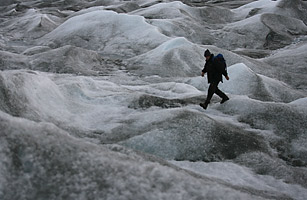
If 2010 was a bad year for environmentalists, it was a really bad year for climate scientists. Just a couple of months after the Climategate controversy broke — featuring thousands of hacked emails that reflected badly, to say the least, on the climate scientists who wrote them — critics showed that the U.N.'s Intergovernmental Panel on Climate Change (IPCC) had made several mistakes in its most recent assessment on climate science. The worst error — or at least the most embarrassing — was a the panel's claim that warming could cause the glaciers of the Himalayas, which provide water for hundreds of millions of people, to melt altogether by 2035. (They were likely off by a matter of centuries.) Perhaps more worrisome, critics found evidence of overstatement in sections on the impact that warming could have on increasing natural disasters. While the mistakes are relatively small ones in a massive paper — and didn't undermine the basic case that man-made carbon emissions are driving warming — they diminished the authority of the IPCC and showed that scientific certainty about the effects of warming are anything but certain.